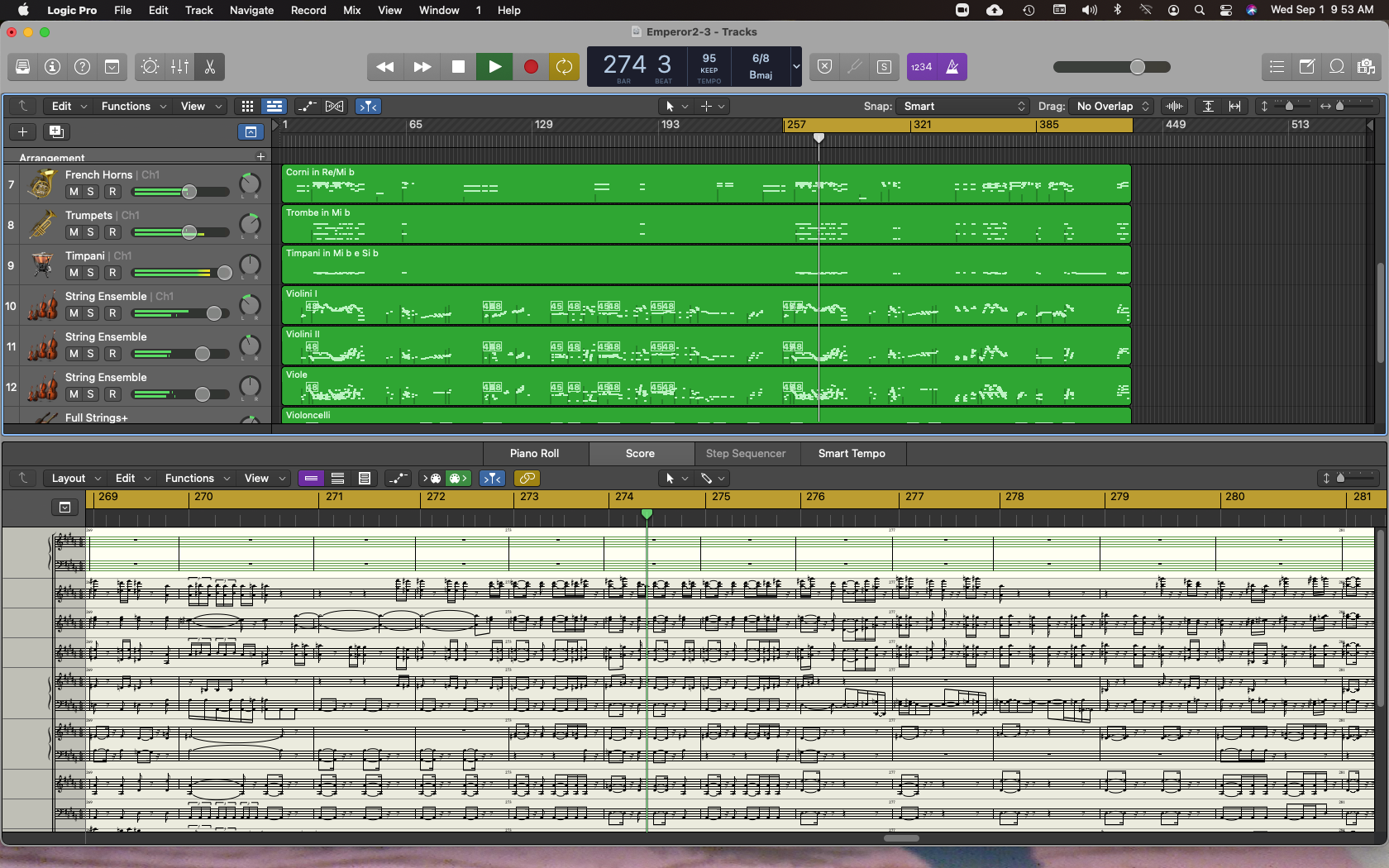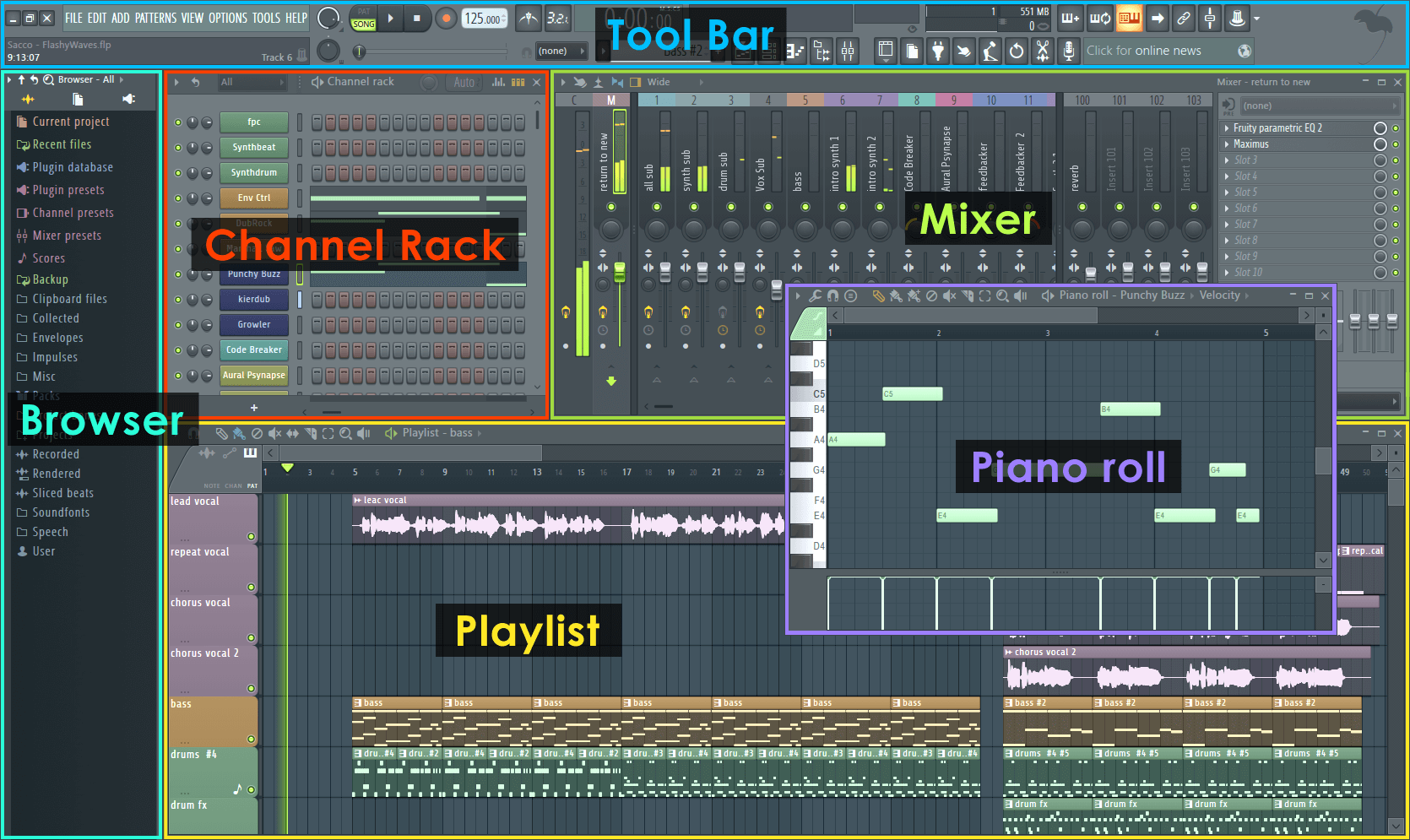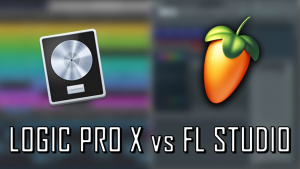Blogs
Displaying items by tag: digital
Choosing The Right DAW For Your Music Projects
By now I'm sure you've heard all the fuss about creating music projects on a computer.
Well, today creating digital audio projects on your handheld device or computer has become affordable and easy to do!
If you're going to take this seriously, I highly recommend investing in some proper gear first. I'll write a separate article on some good recommendations for this, but for now, let's start with a few programs you can use right away without breaking the bank!
A DAW or Digital Audio Workstation is an application that acts as a multitrack recording device. This is the equivalent of having a band, orchestra, and recording studio all in one box.
GarageBand for Mac
I'll start with the goodies for Mac users like myself. The main reason why I prefer the Mac system over Windows/PC is due to the media tools that come standard with Mac, and its framework which is built on UNIX. This offers far superior abilities than the default Windows counterpart.
GarageBand is the default DAW for Mac and it has many instruments and sound effects that can be used right out of the box. You also have the option to download extra sounds clips and instruments to enhance your workstation.

The screenshot you see here is a simple GarageBand project with 5 tracks. The tracks can contain MIDI data (in green) or sampled sounds (in blue). There are plenty of different styles of music, special effects, and instruments you can choose from. It's a simple as dragging and dropping items into place and with a bit of practice, you'll have a decent sounding tune in no time!
Logic Pro for Mac
Did you know you can get a 90-day free trial of Logic Pro for your Mac? Simply go to the Logic Pro 90-day Trial page on Apple's website and download the link on the page, install and you're good to go!

As you can see, the interface is similar to that of GarageBand, but that's about where the similarities end. Logic Pro has a much-improved soundbank library and comes with many utilities that can be used for professional audio production.
I must say that I was quite impressed with the difference in the quality of the orchestral sounds with Logic Pro vs. GarageBand. The above image shows a screen capture of the notation format available, which shows all the sheet music for the instruments being played. In this case, it's a MIDI file of Beethoven's 5th Piano Concerto (in Eb). This in itself deserves a separate blog, but for now, you can rest assured that if you want to expand your piano playing experience with a full orchestra, this is certainly a very affordable and feasible way to do it!
FL Studio for Mac/PC
Finally, the last DAW I will showcase today is FL Studio (formerly Fruity Loops). If you like hip-hop and mixing beats, this is THE DAW for you!

There are literally thousands of virtual instruments sound samples that can be used with it. The interface is easy to navigate once you spend a few minutes with it. The default instrument set and plugins will keep you busy and creative for sure. There's also a version you can use on your mobile device, FL Studio Moblie. Try it out!


There are also some great YouTube channels that have FL Studio experts providing helpful composition and audio mastering advice. One person I recommend is In The Mix with Michael Wynne on YouTube.
Now of course there are many other DAWs to choose from. You can do some digging on your own and come up with names like Cubase and Abelton Live, but since I have not used either and they're kind of pricey, I'll just stick to what I know and trust!
In the coming days, I will share with you some practical examples of using a DAW as a band practice buddy. Who knows, just in case there's another lockdown it will be reassuring to know I'll have something to keep me entertained and sane with... lol.
References:
Digital or Acoustic: What Kind of Piano Should You Get
Now that you're interested in taking piano lessons seriously, your next step is choosing a piano that you will bring home to the family!
If you're fortunate, you may already have a piano or keyboard at home. It may not have seen better days, but now that you're taking things seriously it's time to see if you need to do an upgrade or two.
Problem is, there are so many varieties to choose from. It is difficult to know where to start or how much to spend. Then there's the choice between acoustic and digital. Naturally, there are many advantages and disadvantages to both, so I will do my best to list them here. I've had the opportunity to own and use many different kinds of pianos and keyboards, so let my hands be your guide!
Acoustic Pianos
These of course are the traditional kind. There are many varieties and sizes: apartment-size, upright grand, baby grand, concert grand. Now unless you plan on being the next great virtuoso, there are many great apartment-sized pianos you can choose from either new or secondhand.
Advantages
- You get a true stringed instrument with hammer-action keys made of wood and coated with plastic (not ivory).
- You can play music during a power outage.
Disadvantages
- Pianos require tuning at least twice per year in order to keep the tone sounding nice. Stings get to be thrown out of tune with lots of use or heavy play.
- You need to place the piano in an area away from outside walls for proper humidity control. Pianos made of wood will go out of tune if the humidity varies greatly.
- You need to have enough room in your house to place the piano.
- Moving the piano to a different room or house may be costly and cause more detuning.
- Repairs and maintenance are costly.
- High cost of replacement.
Digital Pianos
These have much improved since their inception in the mid 20th century. Digital pianos use an arrangement of sampled sounds from actual pianos to generate the tones you hear when keys are pressed. These are not the same piano sounds generated from a synthesizer. Most inexpensive keyboards offer this lower quality sound such as many in the Casio and Yamaha series of portable keyboards.
Advantages
- Many digital pianos are equipped with a USB/MIDI port for use with connecting to a tablet or computer. This can be used to control software instruments on a tablet or computer to record keystrokes and other electronic music data.
- Can be used in conjunction with a Digital Audio Workstation (DAW) to make multitrack recordings of music with many instruments (keyboard, drums, synthesizer, vocals, etc.)
- Can be moved around with relative ease. Varieties come in the same size as many apartment or baby grand piano styles.
- They do not go out of tune.
- Low cost of replacement,
Disadvantages
- Avoid water at all costs!
- Bad news for you if there's a power failure.
- Lower-quality keyboards have a tendency to break easily.
- Computer connectivity can sometimes be problematic (i.e. driver updates, lack of support, computer hardware issues)
- Motherboards or chips may become defective over time.
Recommendations
Unless you're planning to be a concert pianist, your best bet would be to invest in a good digital piano with weighted hammer-action keys. 88-keys is the standard, however, there are some that come with 76-key and 61-key variations.
The feel is comparable to many good-quality baby grand pianos but without the high price tag and constant maintenance. Roland and Yamaha have good-sounding digital pianos with an excellent feel. They offer full MIDI capability, and when used in conjunction with a DAW such as Logic Pro or Arturia V Piano that come with many fantastic samples of pianos, you will not know the difference and may never look at acoustic pianos the same way.
Getting a piano is a sound investment (no pun intended), and in the end, whether it's an acoustic or digital piano, you win either way as a musician for life!

Subscribe to our newsletter for the latest news and trends in music and digital media.
Our Services
Get in Touch
Digital Media Camps
61 16th Street
Roxboro, Quebec CANADA
H8Y 1P1
1-800-847-7820
TOLL-FREE Canada & USA






